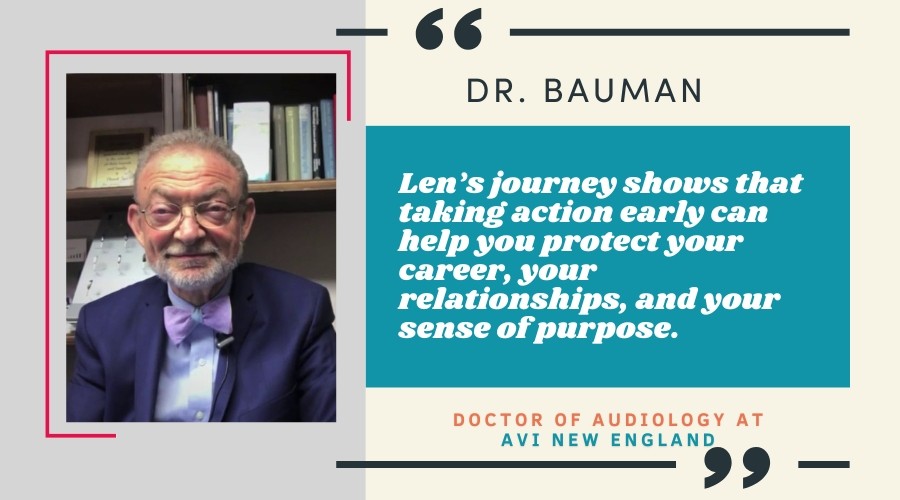
|
Dr. Natan Bauman
|
Aug 16, 2025
Hyperacusis is a condition that involves a sensitivity to everyday sounds, causing them to seem painfully loud or uncomfortable.
This heightened sensitivity poses unique challenges in crowded environments, where the blend of overlapping conversations, sporadic background music, and sudden roars of noise can be particularly overwhelming.
As your local expert in hyperacusis, you can rely on my team and me to provide valuable insights on managing this condition.
At AVI New England, our focus is on employing both immediate coping strategies and long-term treatment plans to help you regain control in social or public scenarios.
Understanding Hyperacusis in Crowds
Crowds include a variety of sound sources, turning a social gathering into a daunting experience for someone with hyperacusis.
Crowds are nests of unpredictable noise sources; imagine trying to focus on a conversation amidst layers of dialogue, clinking glasses, and ambient chatter. This causes a sensory overload that the brain struggles to filter, making selective hearing almost impossible.
The unpredictable nature of noise in crowds, such as applause, laughter, or sudden announcements, can jar the senses, leading to physical discomfort or panic. The startle reflex is intensified in these settings.
Spaces like auditoriums or large halls might have poor acoustic designs, leading to echoes or reverberations that distort sounds further and complicate an already challenging auditory environment.
Practical Strategies for Coping With Hyperacusis
While crowded environments are inherently challenging, several strategies can help in managing hyperacusis effectively.
Before attending events, map out quieter spots at the venue. Arrive early to select seating that minimizes exposure to direct noise, such as spots away from speakers or main walkways.
Unlike conventional earplugs, custom-fit ones are designed to reduce noise to a bearable level without completely isolating you from your surroundings. They enable conversation engagement while reducing the overall noise impact.
Allow yourself breaks during the event itself; stepping away to a quieter area or taking periodic breaks outside not only reduces sound exposure but also helps calm the nervous system.
Employing deep breathing exercises can stabilize your nervous system, reducing anxiety related to auditory overstimulation. Grounding techniques like focusing on touch or visual cues can distract from the auditory overload.
Therapy that involves gradual exposure to sound under professional supervision can improve auditory tolerance over time. This desensitization approach can be personalized to fit the individual's auditory landscape.
Why Professional Support Makes a Difference
Hyperacusis is a complex issue, and professional guidance is required to manage it effectively.
Expert Diagnosis and Treatment: You can rest easy knowing that my expertise, as well as my entire team’s talents, stems from decades of treating sound sensitivity with precision and care. Our methodical approach ensures nuanced diagnostic processes and individualized treatment plans.
Beyond Generic Advice: Your interventions will be personally tailored to address the unique challenges you face. This personalization is key to long-term success with hearing healthcare.
Continuous Monitoring and Support: Living with hyperacusis is a dynamic process, and ongoing support is crucial. Regular check-ins with your local team of experts facilitate adjustments to treatment plans and enhance patient empowerment.
Take Control of Your Hearing Health
Living with hyperacusis can strain your presence in social environments, but with the right strategies and professional interventions, it can be managed effectively.
You can rest assured that with our team, you will feel empowered to tackle hearing challenges with bespoke strategies and support that put your unique needs first.
Hyperacusis can make crowds challenging, but it doesn’t have to hold you back. Expert care can help you understand your sound sensitivity and give you the tools to manage it with confidence.
Call today to book your consultation, or request a callback to get your questions and concerns addressed by a member of our team.





















